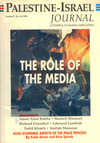Editorial
Those who waited for the visit of US President William Clinton to
Israel and Palestine in December 1998, in the hope that it would
save the peace process, were disappointed.
For almost two years now, the peace process has been at a
standstill. Prime Minister Binyamin Netanyahu was trapped between
his declared policy and his own ideological tenets and narrow
government coalition with the religious and right-wing national
parties. It was obvious he enjoyed the situation, preferring to be
forced by his coalition to adhere to his ideology rather than to
act as a national leader. Netanyahu turns out to be incapable of
providing the sort of national leadership which respects
international obligations, and is sufficiently forwardlooking to
know where the national interests of his country lie in the long
term.
Only this can explain his efforts to evade the implementation of
the Oslo Declaration of Principles (DOP) and the later agreements
based on it, known as the "peace process." Acc
read more ...
